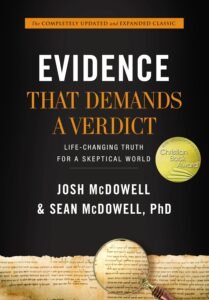If fasting, prayer, and praise sound like difficult or unpleasant parts of your faith, that means they’re worth trying.
Some religious traditions don’t put much emphasis on these practices or only do so during certain parts of the year. But, when done with an open mind and a seeking heart, they can become pleasant and eye-opening practices any time.
The Power of Fasting
If you want to do things “by the book,” talk to a leader in your faith community about what exactly “fasting” means in your religious tradition.
For example, the Catholic Church has a pretty clear set of rules on what constitutes fasting, as well as who is expected to do it and when, but not all religious communities are so black-and-white in their formulas.
- NEW YORK TIMES BESTSELLER! OVER 5 MILLION COPIES SOLD!Is there credible evidence that Jesus of...
- In this revised and updated bestseller, The Case for Christ, Lee Strobel cross-examines a dozen...
If you’re looking at fasting as a way to build your faith, you can be freer with it. In general, “fasting” just means “not eating as much or as often as you would like to.” Of course, fasting doesn’t mean “not eating enough”—a fast is not a diet, nor should it negatively impact your health.
But why would not eating as much be a part of a religious tradition? How does not feeding your body feed your soul? This can happen in a couple of ways.
For one thing, the discomfort that fasting can cause can be a reminder of your faith throughout your day. It can also unite you to the suffering of Christ. Some believe that it can be “offered up” to atone for sins.
If you want more concrete results, consider donating extra money from your grocery budget to a charity helping the food insecure.
The Power of Prayer
Donations can help others, but they might not help you. Prayer, on the other hand, can do wonders. Prayer and fasting together can be a powerful experience.
In the prayer that Jesus gave us, we are guided to pray that God “give us this day our daily bread” (Matthew 6:11). It is Christ’s recommendation that we pray for what God knows we need, not for what we think we want.
It is also a callback to Exodus, when God gives the Hebrews manna to eat and instructs them to gather each morning only what they need for the day ahead (16:4). When we chase what we think we want or deserve instead of being content with what God gives us, we open the door to greed. Fasting combined with prayer keeps us humble, and it keeps us happy.
The Power of Praise
Fasts remind us of our human condition, and prayer reminds us Who provides our needs. This is a recipe for gratitude, and praise is how we express it. For, as John the Baptist told us,
“No one can receive anything except what has been given him from heaven.”
John 3:27
Physically speaking, fasting is a strictly dietary experience. And, as we looked at the passage from the Lord’s Prayer, it can be easy to get hung up on food.
However, “bread” doesn’t have to mean literal bread—“bread” is a stand-in for all our earthly needs. And, if you can choose to fast, it probably means that all of your earthly needs are met. Be grateful!
When we look for things to be grateful for, we find things to be grateful for. The more grateful we are, the easier it is to continue being grateful. Gratitude for what God has given us leads to faith in what God has yet to give. Praise isn’t just a thing we do because it’s nice for God; it’s a thing we do because it’s good for ourselves.
Happiness by Way of Gratitude and Faith
It can be easy to look at fasting, prayer, and praise as things we do because we’re told to. If we do these things just because we think we’re supposed to, we’re not likely to get much out of them. However, when we see these things as tools to build greater gratitude and stronger faith, they can become something to look forward to and enjoy.









![In His Image by Jen Wilkin [Book Review]](https://christpulse.com/wp-content/uploads/2024/10/61MjIOQcqzL._SL1500_-672x1024.jpg)
![The Freedom of Self Forgetfulness by Timothy Keller [Book Review]](https://christpulse.com/wp-content/uploads/2024/10/81d66nQwKTL._SL1500_-e1729059953717-678x1024.jpg)
![The God I Never Knew by Robert Morris [Book Review]](https://christpulse.com/wp-content/uploads/2024/10/71hJU7TtmCL._SL1200_-685x1024.jpg)
![Risen Motherhood: Gospel Hope for Everyday Moments [Book Review]](https://christpulse.com/wp-content/uploads/2024/10/71cpHIjWJ4L._SL1500_-769x1024.jpg)
![The Case For Christianity By C.S.Lewis [Book Review]](https://christpulse.com/wp-content/uploads/2024/04/415022.jpg)






Leave a Comment